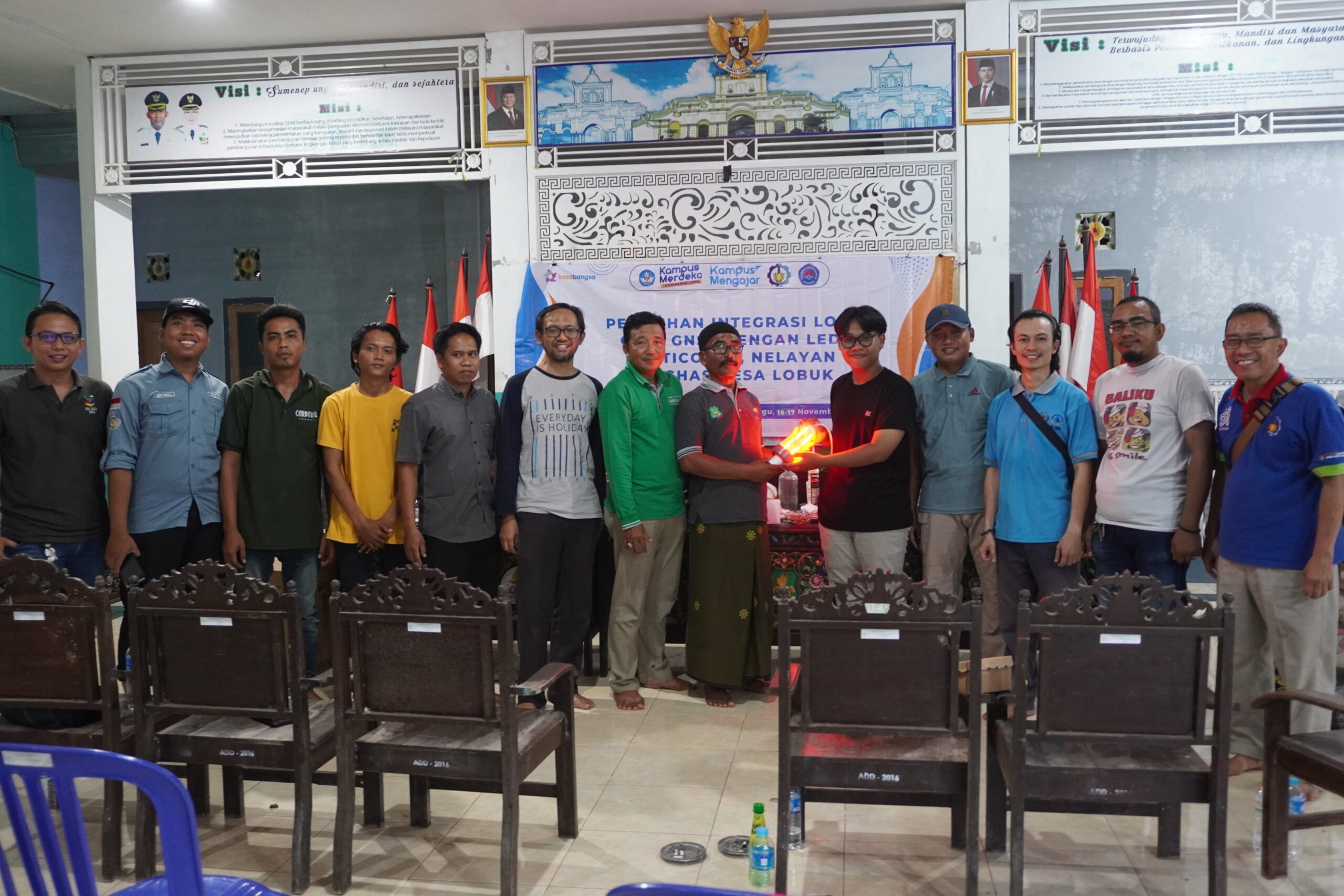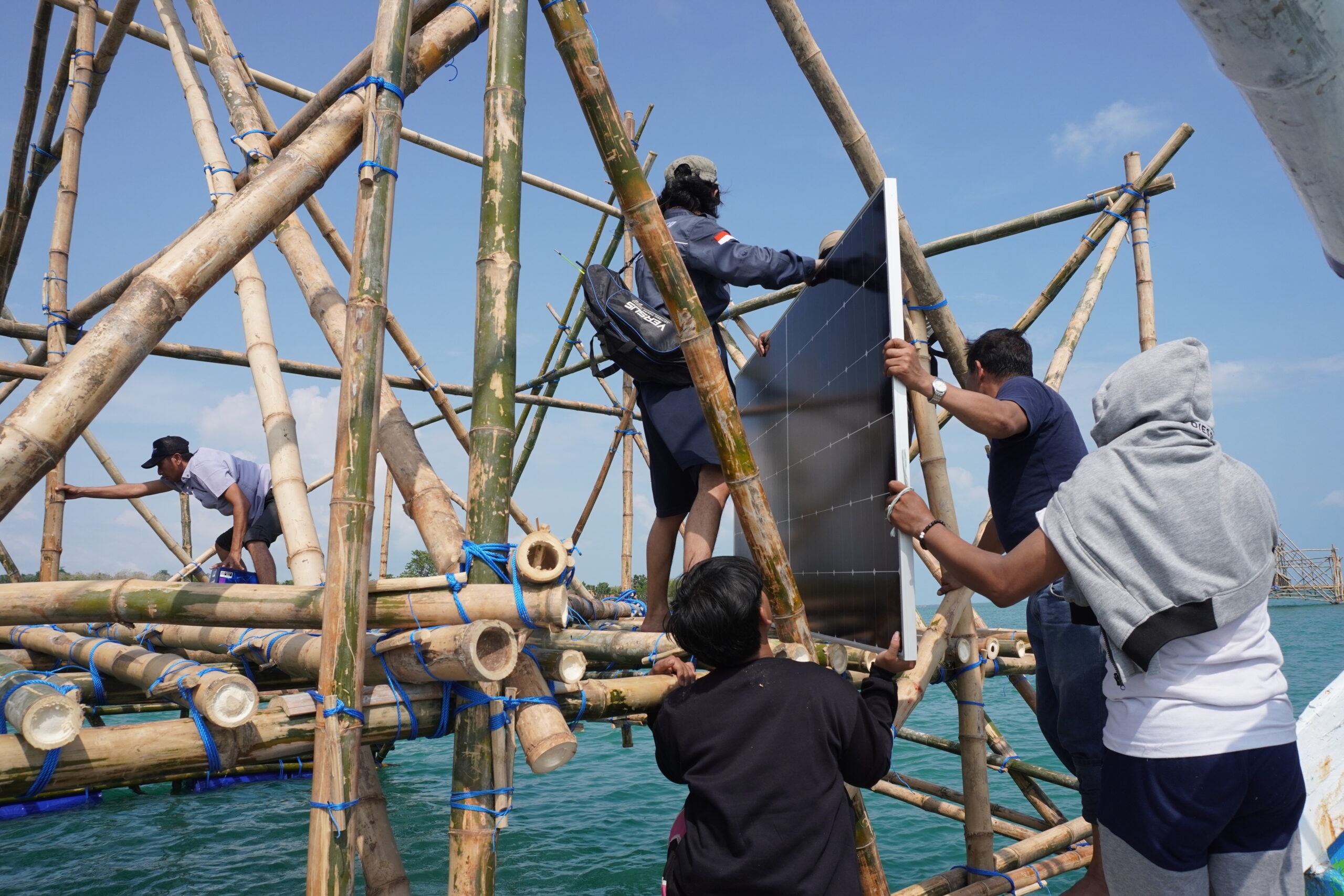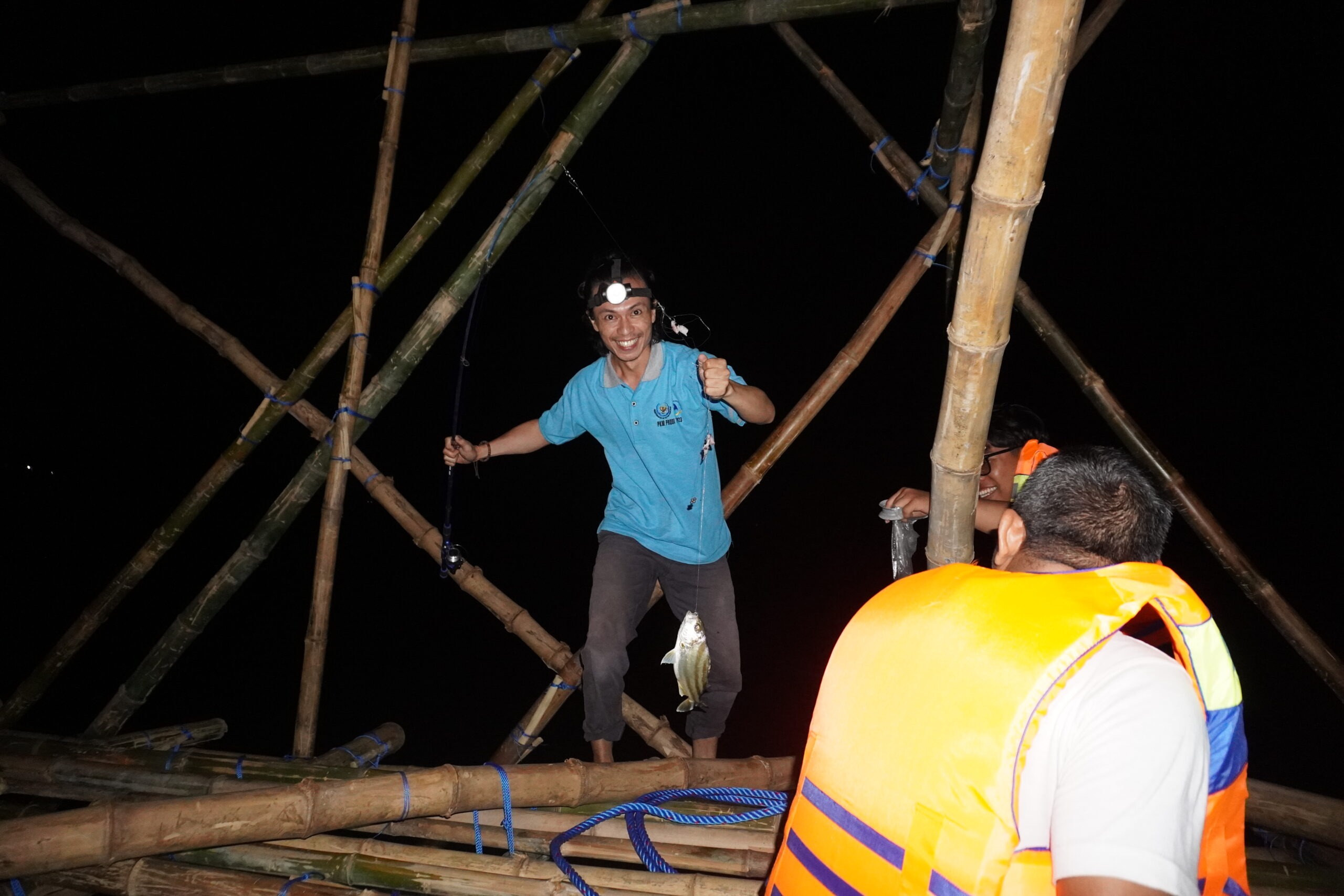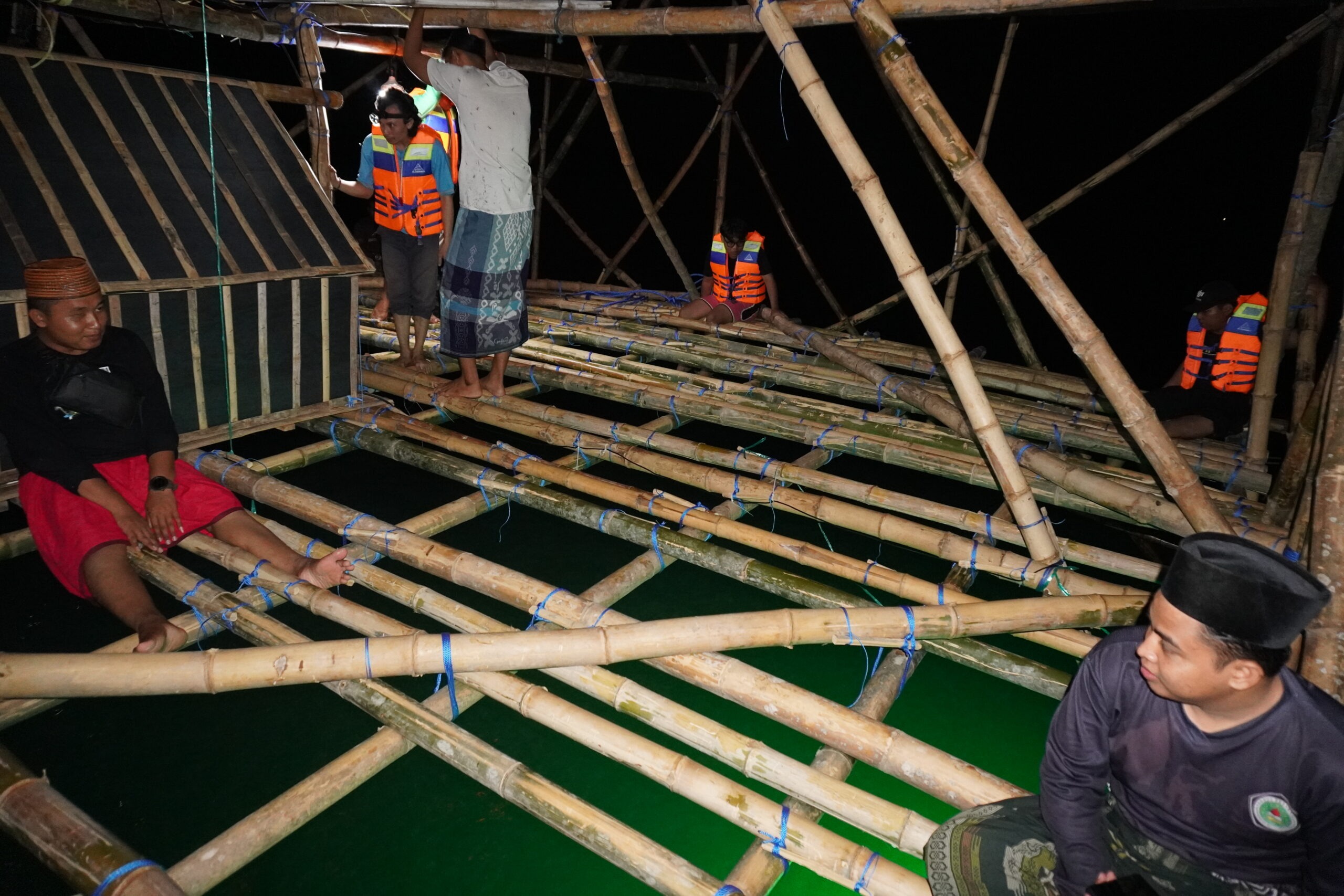ITS Optimizes Multicolor LED Technology and Low-Cost GNSS as Solution to Fishermen’s Problems in Lobuk Village
News
Lobuk Village, located in Bluto District, Sumenep Regency, East Java, is an independent village with most of its population working as fishermen. However, Lobuk Village still faces major challenges, including the presence of 503 poor families, mostly small fishermen who rely on traditional fishing methods using a tool called angghas. Angghas is a fishing tool resembling a bagan with small fish aggregating devices that attract fish to gather, making the fishing process easier. However, despite using this traditional method, fishermen’s catch is still limited in terms of quantity and quality.

Low-Cost GNSS Integration Training with Multicolor LEDs with Lobuk Village Fishermen
Angghas as a Fishing Tourism Destination and Simple Fishing Equipment for Fishermen
To improve the welfare of its citizens, the Lobuk Village Government initiated the formation of a Tourism Awareness Group (Pokdarwis), which involves angghas fishermen by utilizing angghas as a fishing spot around “Pantai Matahari.” In this program, 25 fishermen joined to manage angghas and make it a tourist spot for anglers. With tourists utilizing angghas for fishing, fishermen have the potential to earn additional income. The use of angghas as a fishing spot is carried out during the day, while at night the angghas are used again by fishermen to catch fish. However, even though this program already exists, simple fishing equipment is one of the main obstacles to increasing fish catches.

The process of installing solar panels as an energy source for low-cost GNSS and multicolor LEDs applied in Angghas
Quality and Quantity are Not Yet Optimal
The main problems faced by the angghas fishermen who are members of the Pokdarwis of Lobuk Village include two major aspects: production and management. In terms of production, the fishing equipment that is still simple makes the fish catch capacity low, both in terms of quantity and quality. Fishermen cannot choose the type of fish they want to catch, so the catch is generally a mixture of fish with a small amount. Meanwhile, in terms of management, fishermen have difficulty regulating the distance of fishing between angghas, which ultimately causes competition between fishermen in catching fish. In addition, fishermen have not utilized technology that can help improve efficiency and results in the fishing process.
Low-Cost GNSS and Multicolor LED Lights as a Solution
To overcome these challenges, the Sepuluh Nopember Institute of Technology (ITS), through a team led by Prof. Nur Cahyadi and a team from the Center for Marine-Earth Science and Technology Research introduced the latest technology and innovation by integrating Low-Cost GNSS and Multicolor LED Lights. Low-Cost GNSS is a positioning technology similar to Geodetic GPS, which will provide data on the position of fishermen when fishing. With this technology, the position of each fisherman can be monitored in real-time, so that the arrangement of distance between fishermen can be done more effectively, avoiding distances that are too close and minimizing competition.
Meanwhile, Multicolor LED lights that have the ability to attract fish due to their phototaxis properties, will be installed under the angghas to attract fish to gather around the fishing gear. These lights also allow fishermen to clearly see the number of fish collected, so they can choose the right time to start fishing.


Low-Cost GNSS and Multi-Color LED Application Trial at Night
With the implementation of these two technologies, it is expected that the fish catch of fishermen in Lobuk Village can increase, both in terms of quality and quantity. In addition, this innovation will also increase efficiency in the fishing process and expand income opportunities for fishermen through the tourism sector. This program is expected to not only improve the welfare of fishermen, but also have a positive impact on the economy of Lobuk Village as a whole.
Latest News
-
ITS Optimizes Multicolor LED Technology and Low-Cost GNSS as Solution to Fishermen’s Problems in Lobuk Village
Lobuk Village, located in Bluto District, Sumenep Regency, East Java, is an independent village with most of its population
-
ITS Introduces Low-Cost Technology to Increase Fishermen’s Income in Lobuk Village
Lobuk Village is a village located in Bluto District, Sumenep Regency, East Java. Although it has won the title
-
ITS Technology Innovation Increases Fishermen’s Productivity in Lobuk Village
Sumenep – Fishermen in Lobuk Village, Bluto District, Sumenep Regency, now have new hope thanks to the technological innovation





